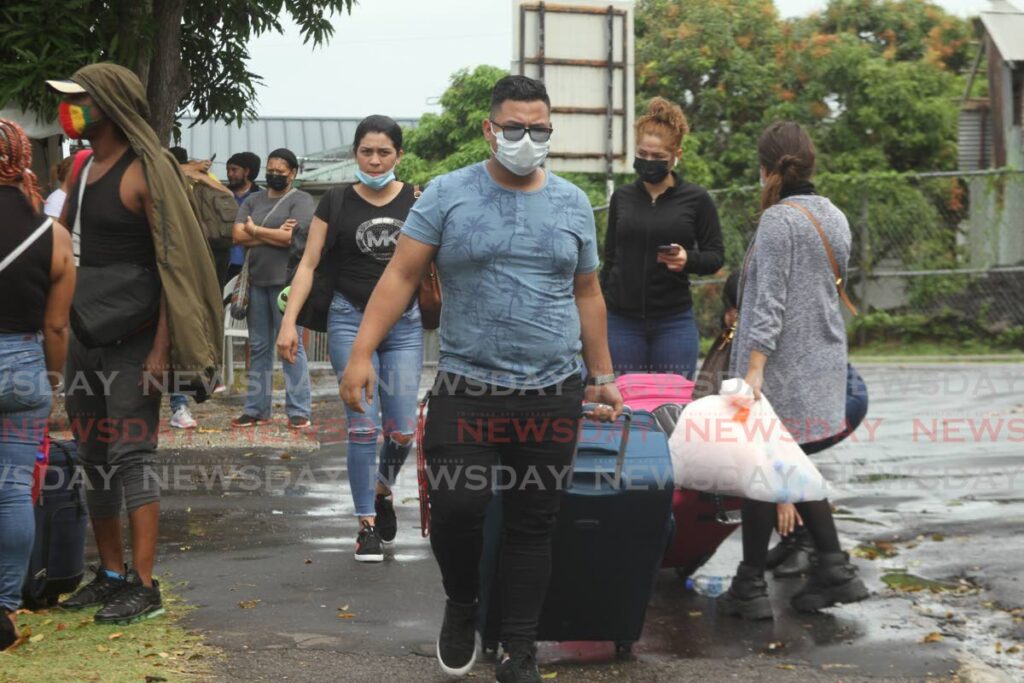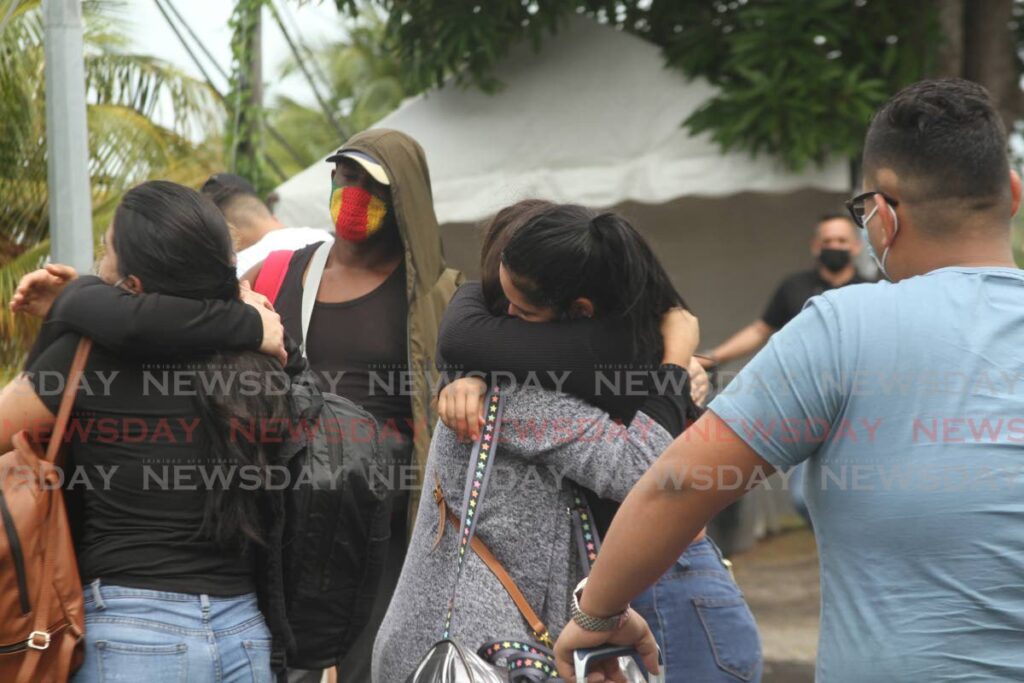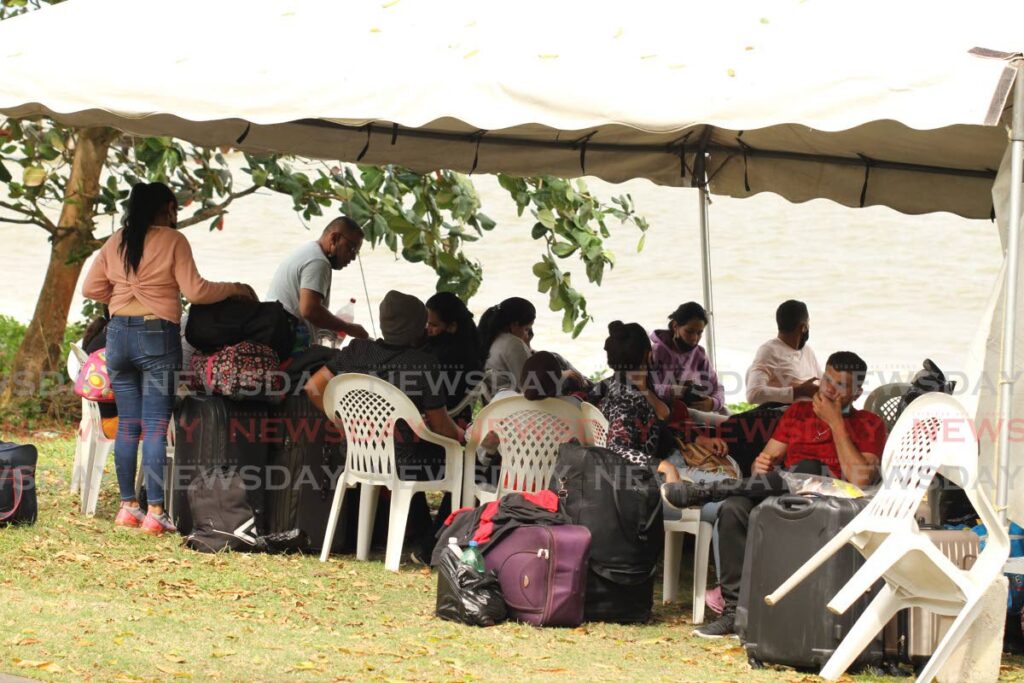2,000 Venezuelans return home as cost of living rises in Trinidad and Tobago

More than 2,000 Venezuelans who came to Trinidad and Tobago seeking a better life have returned home as the cost of living here increases.
Since TT reopened its borders on July 17, 2021, thousands of migrants have left of their own free will. The borders were closed in March 2020 as one of the measures to prevent the spread of covid19.
One of the single largest groups left on the day the borders reopened.
On that day, close to 700 migrants who sought refuge here to escape the economic and political turmoil left this country on a chartered vessel to head back home.
Most of the passengers were sick, unemployed, single mothers, pregnant women and children.
Some of the adults had taken advantage of the registration exercise in mid-2019 offered by the Government which allowed 16,523 of them to live and work in this country.
In February 2021, the Government approved the arrival of a Venezuelan plane at the Piarco airport to take 90 migrants back home. The Venezuelan embassy in TT was in charge of both repatriation trips.

According to Venezuelans living in TT, hundreds more have been deported by the government and an unknown number have been leaving irregularly in small boats.
Some families who left their children behind when they fled Venezuela owing to diminishing food and medical supplies said their decision to return home was also difficult.
Cristian Roldan, a 32-year-old Venezuelan who was waiting at the port of Cedros, on January 27, to get on the boat to take him home after four years in TT, says he misses his son.
“I came to TT for my son and for him I return now. When I left my country he was two years old, today he has grown up. I miss him and I need to hug him,” said Roldan.
He thanked the people of TT for opening their doors and giving him support during his stay.
“I think my time at TT is over. I go to my country looking for alternatives to continue giving my son the socioeconomic stability he needs and to be at his side,” said Roldan.
Although many Venezuelans believe that things in their country have not improved, others like Carlos Altuve believe that they have.
“There are options, some business can be opened in Venezuela. Now the US dollar is being handled a lot there and many companies have reopened. I want to go try my luck in my own country, with my family close by,” Altuve said.
He and his brother, Andres, both lawyers, have been in TT for three years and worked in the construction industry while here.
Cesar Armao had been in TT for three and a half years before he decided to put an end to his migratory adventure.
“I'm tired of migrating, here the economy is also changing, the prices of food, transportation, rent and medicine are going up, while wages for migrants are getting lower and lower,” he said.

“TT is a beautiful country, but unfortunately for migrants, the legal situation and the lack of answers for our children's education and medical care force us to go to other countries,” said Luisa Arcia.
She had among her plans on arrival in Venezuela with her son, was to see her parents, and continue a week later to Brazil.
“In Brazil and other countries, legal support for Venezuelans is important. We have identification for several years with work permits, access to bank accounts, driver's licences, migrant children can study and go to medical consultations in public systems, very different from the treatment we receive in TT. It is incomprehensible that a migrant child, who is not to blame for the things of the world, cannot receive education and health,” she said.
Each Venezuelan who returns to his country has various reasons and plans for the future, some go to stay and try to advance in their own land, while others continue to seek opportunities in other countries.
Angel del Orinoco is the main transport company that has taken most Venezuelans back home on its ferry service.
Orangel Lacourt, owner of Angel del Orinoco, told Sunday Newsday since they received the travel permits last year, more than 1,000 migrants have travelled from TT to Venezuela with them.

Lacourt said two 36-passenger boats make two trips a week.
“We are a company with five years of operation between both countries and with more than 30 employees. We have two boats that make the trip once a week, leaving from the port of Manamo, Tucupita, Venezuela on Tuesdays and Thursdays to the Port of Cedros in TT,” he said.
Other shipping companies based in both countries are also undergoing the legal procedures for the maritime transport of people.
Puerto Caribe is one of those shipping companies that currently transport parcels but intends to carry passengers as well.
Sheliza Sebatiani, owner of the company, said they would have the port of Guiria as a point in Venezuela and the port of Chaguaramas.
“We are only waiting for the approval of the Trinidadian authorities because the private port we use only has permits for parcel departure,” she said.
Sebastiani hopes in the coming weeks she can start with the TT-Venezuela passenger trips.
Angel del Orinoco's register has hundreds of requests for tickets to travel back to Venezuela.
Venezuelans can also return by the flights offered by Copa Airlines via Piarco to Panama and then to Caracas. So far there are no direct commercial flights between the two countries.
Angel del Orinoco offers its tickets at TT$2,000 or US$250 per person, in addition to TT$75 for the exit tax and the antigen or PCR test for covid19 with 72 hours of prior validity that varies in prices from TT$250. There is an additional cost for the taxi to take passengers to Cedros.

Puerto Caribe has a plan for a lower rate of US$125 per person, plus other common expenses.
“Our intention is to be able to help Venezuelans who want to return to their country. We have a lot of friends who are not having a good time here and need to go home,” Sebastiani said.
For those who want to travel by plane, Copa Airlines offers on its website the flight to Caracas for US$783, in addition to the cost of a PCR test and tax.
Officials from the Venezuelan embassy told Sunday Newsday each person who is going to travel needs a valid passport and those who do not have it must opt for a provisional travel permit which has a value of TT$375 or US$50.
Minors will also need the authorisation of their parents or legal representatives. Provisional travel permits for children who do not have a passport are issued free of charge.
Sunday Newsday understands the Venezuelan embassy in TT does not directly manage the organisation of the trips, however, they have collaborated by providing the corresponding information on the process to be followed by the shipping companies to obtain the respective permits.


Comments
"2,000 Venezuelans return home as cost of living rises in Trinidad and Tobago"